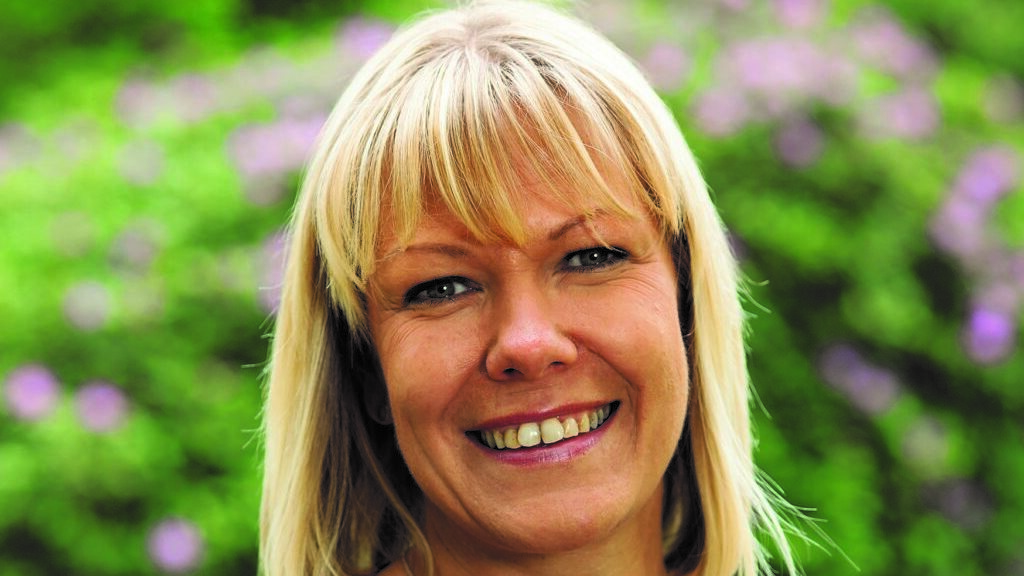Uniting against loneliness

Nika Noakes, chief strategy and transformation officer at Adopt a Grandparent, issues a call to action in the fight for companionship
In a world bustling with digital connectivity, loneliness presents a silent yet formidable threat to global health. The World Health Organisation’s (WHO) declaration of loneliness as a pressing health concern echoes the cries of millions yearning for genuine human connection. It’s a challenge Adopt a Grandparent confronts head-on, with a resolute mission to combat these levels of isolation.
Loneliness doesn’t discriminate, it transcends age, gender and socioeconomic status. Yet, its impact on older generations stands as a poignant reminder of the pressing need for meaningful relationships. As the chief strategy and transformation officer of Adopt a Grandparent, I stand firm in advocating for a society where companionship and intergenerational bonding are not just niceties but fundamental pillars of wellbeing.
With statistics showing that 1.2 million older people in England are chronically lonely and that 200,000 older people have not had a conversation with friends or family for an entire month, the alarming facts about loneliness serve as a rallying cry—a call to action for communities to come together. Together, we can champion companionship and combat loneliness through the strength of human connections.
At Adopt a Grandparent, we encourage public sector organisations and local councils to join hands with us in the battle against loneliness — while also collaborating with social care associations, social prescribing organisations and government authorities.
The WHO’s call urging nations to prioritise social connection is exactly why we founded our charity. We’ve witnessed first-hand the transformative power of cultivating connections across generations. Our success story of almost 100,000 volunteers speaks to the effectiveness of promoting intergenerational relationships, echoing the mandate of the WHO’s social commission dedicated to alleviating loneliness.
Social care organisations stand at the forefront of combating loneliness, wielding a range of impactful strategies to prevent isolation among vulnerable populations. One key approach involves the establishment of community engagement programmes, holding regular gatherings, hobby clubs, or cultural events that encourage social interaction across different age groups. These initiatives serve as vital avenues for encouraging connections and mitigating the effects of loneliness by providing spaces where individuals can develop meaningful relationships.
Another pivotal role lies in the creation of volunteer networks aimed at offering companionship and support to those at risk of loneliness. Through friendly visits, phone calls, or assistance with errands, volunteers become lifelines — forming genuine connections and alleviating the sense of isolation experienced by many.
Embracing technology is equally crucial, especially for individuals facing physical limitations or residing in remote areas. Social care organisations can provide access to devices and offer training to ensure a level of connectivity that would allow individuals to stay engaged with friends, family, or support networks such as Adopt a Grandparent volunteers.
Intergenerational initiatives are powerful tools in the fight against loneliness. Collaboration with schools or youth organisations creates opportunities for younger generations to interact with older adults through mentoring, shared activities, or story sharing. These programmes not only bridge generational gaps but also nurture empathy and companionship across age groups.
Personalised support plans tailored to address an individual’s social needs alongside their physical and mental health are integral, too. Social prescribing, referring individuals to community activities or support groups, is an effective way to tackle loneliness within personalised care plans. Training caregivers and staff to identify signs of loneliness and implement strategies to address it empathetically is also essential in creating a compassionate and supportive environment.
Moreover, forging collaborations and partnerships with local entities, such as religious institutions, libraries, or businesses, creates a network of support and expands outreach efforts. By integrating these multifaceted approaches, social care organisations can actively contribute to preventing loneliness, fostering a more connected and supportive community for those most at risk.
As Adopt a Grandparent gears up for our purpose-driven, annual community campaign—”Month of Companionship”—set to launch early next year, we extend an open invitation. Join us, public and private sectors alike, educational institutions and all facets of the health and social care, as we celebrate companionship. Let’s engage in cross-generational bonding activities, developing an appreciation for the joy found in genuine connections.
Beyond simply being a campaign, this is an impassioned plea to embrace companionship and weave together communities worldwide. Let charitable, governmental, and social care organisations alike be the catalysts for change, echoing the WHO’s call and shaping a future where loneliness finds no sanctuary amidst the warmth of human connections.



